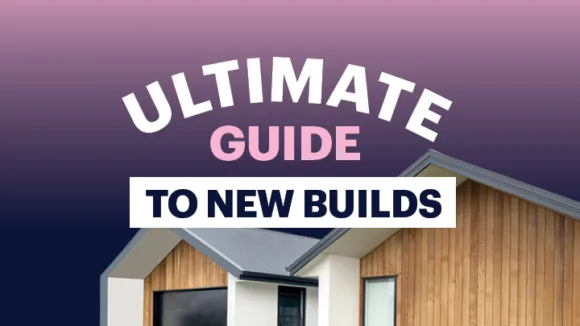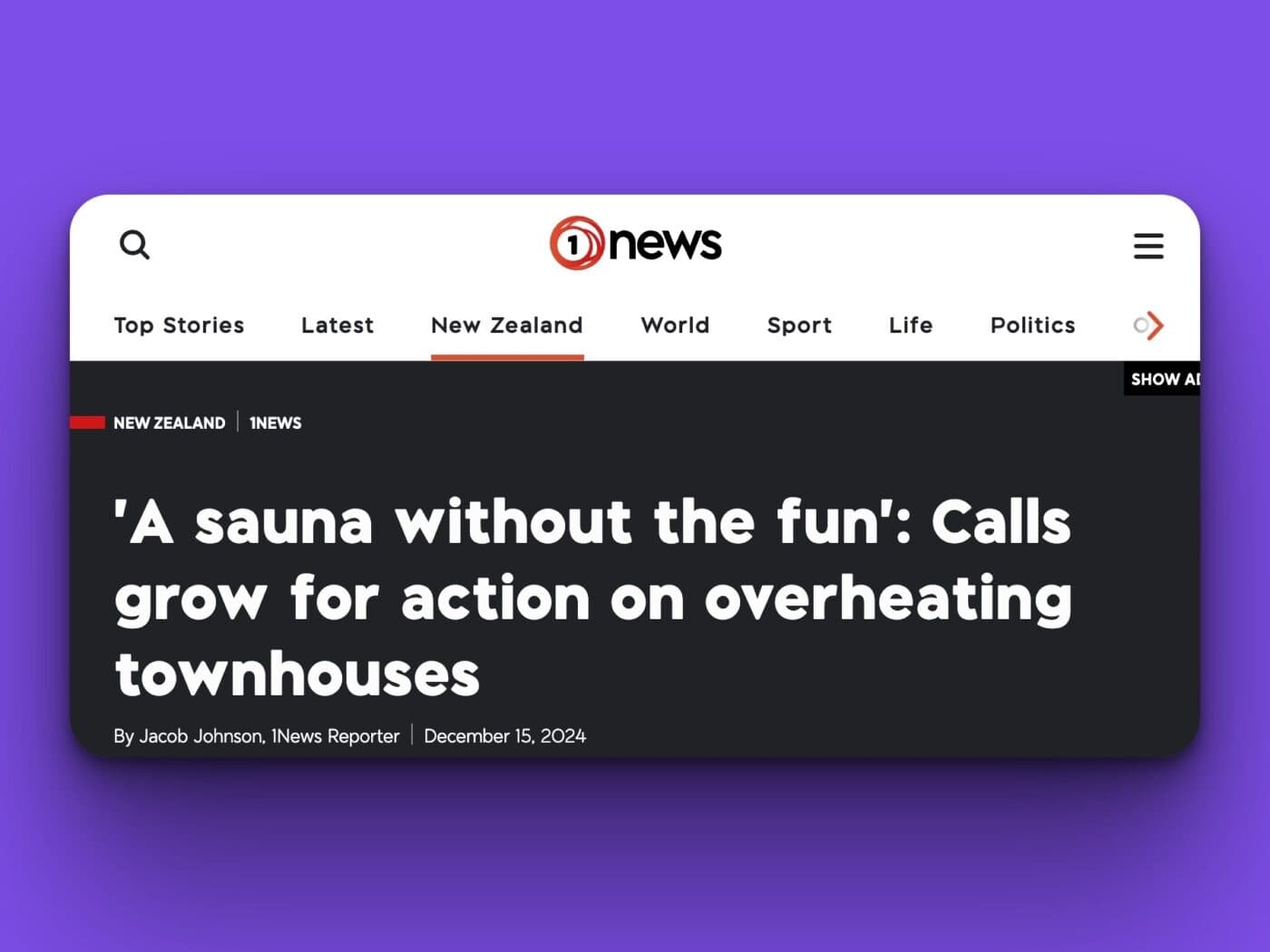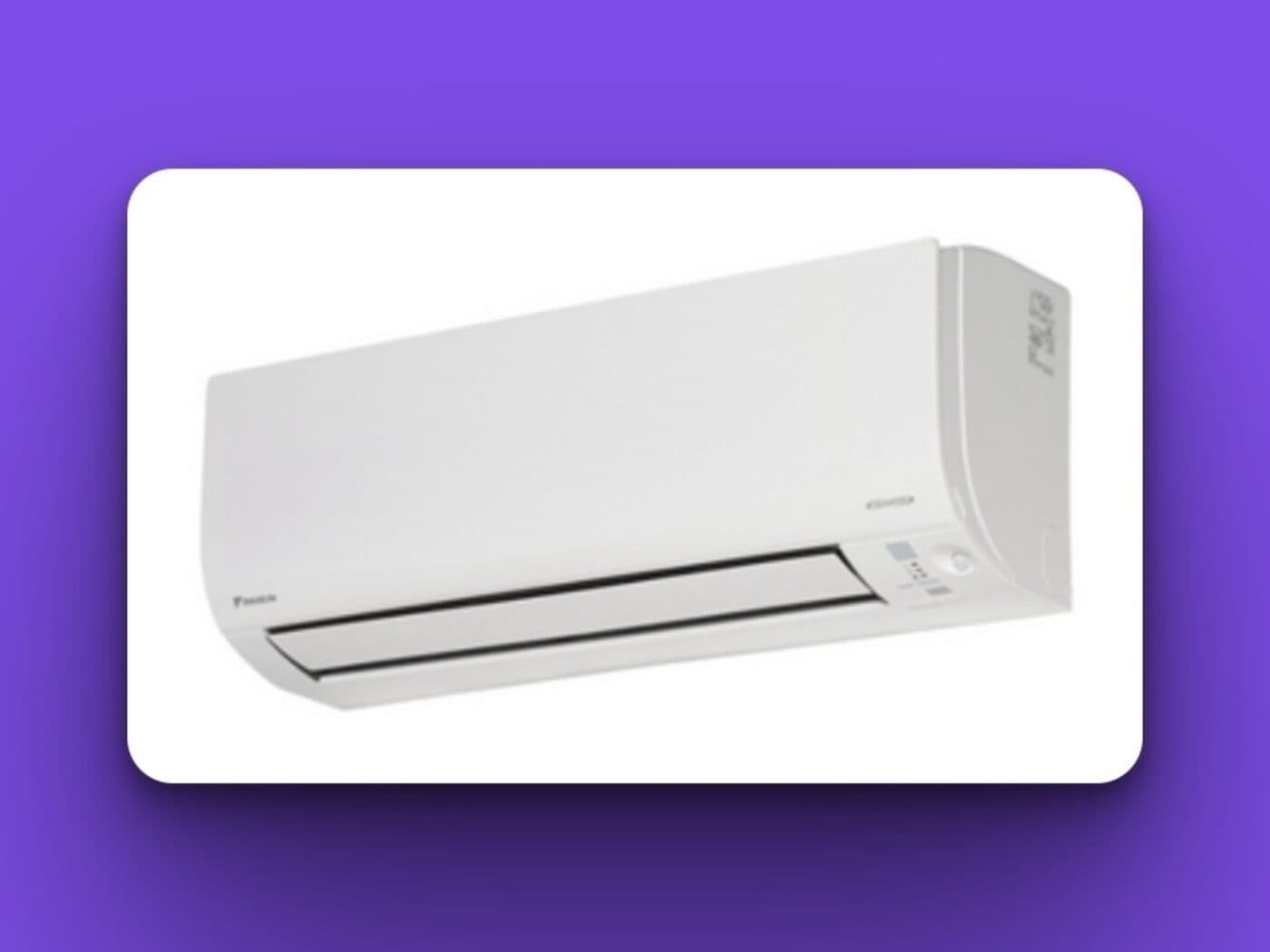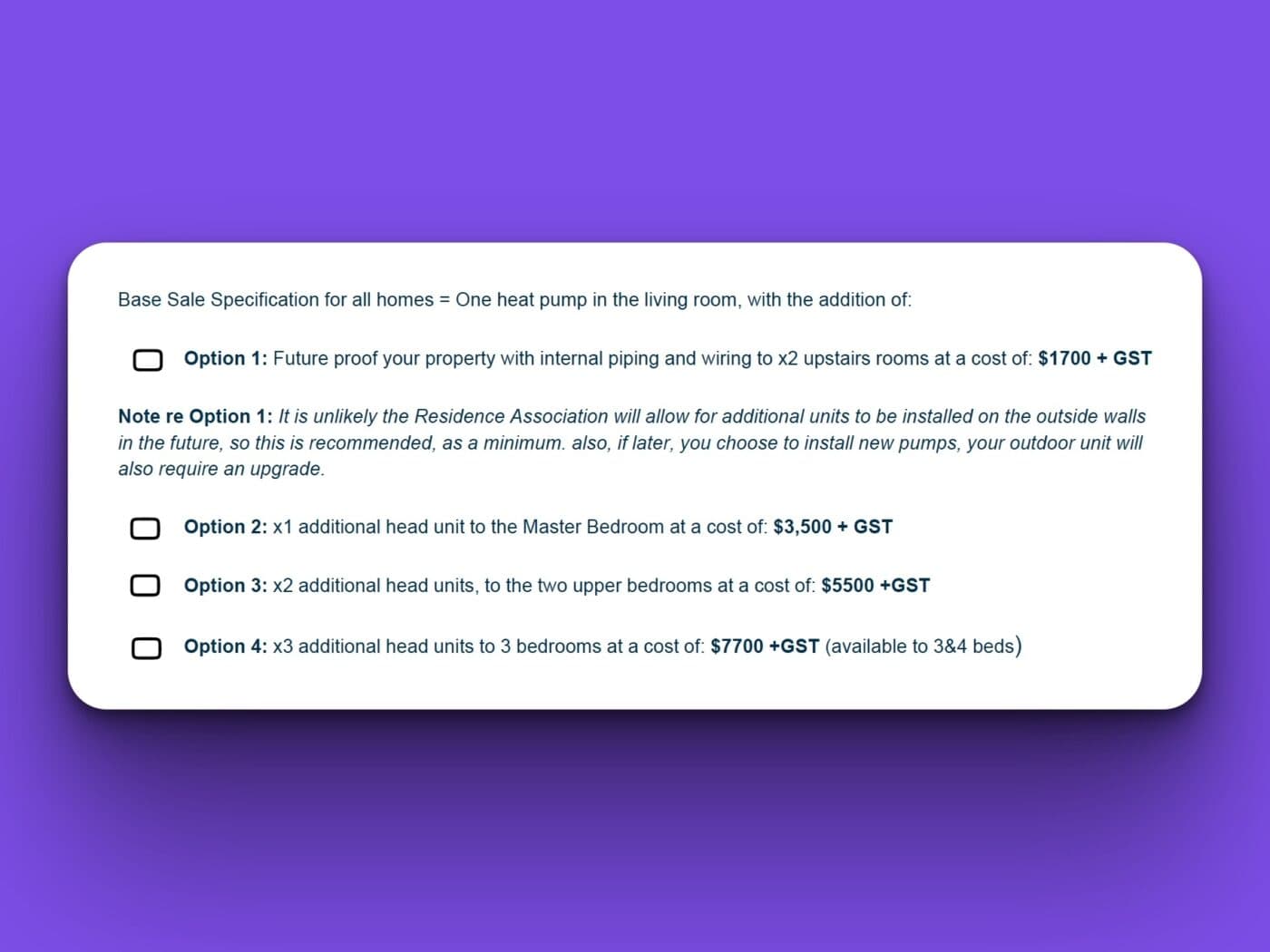
New Builds
New builds - The ultimate guide for every property investor
Explore the essentials of investing in new builds. Our guide covers key strategies, benefits, and tips to navigate the market and maximise your investment.
Property Investment
5 min read

Author: Louis Fraysse
Louis is a registered financial adviser with an MBA from Massey University.
Reviewed by: Tom Greene
Business Development Manager with 5 years Property Management industry experience. Property Investor in Christchurch
Kiwis want to live in warm, dry homes ... that’s why we keep changing the building code.
But have we gone too far in the other direction?
Tenants like New Builds because they are toasty in winter, but during summer they can be too hot – especially on the second and third stories.
You might have seen the headlines:

Sounds like a punchline, but for homeowners and tenants it’s a very real (and sweaty) problem.
As a property investor if you buy a townhouse that’s “too hot to handle” you might get complaints from tenants. It could mean you have longer vacancies between tenants or it could make your property harder to sell.
In this article, you’ll learn what’s causing the problem, why it matters to investors, and what you can do to cool things down.
Sure, the temperature changes throughout the year with the seasons. Most of us have lived in homes freezing in winter and stuffy in summer. It’s a Kiwi rite of passage.
But this is different. Some New Build homes stay consistently hot. They can climb above 25 degrees inside. That can make it tough to sleep, or live a normal life.
For property investors, that heat can raise a lot of concerns:
If a home becomes uncomfortably hot, it could make it harder to rent or sell and that impacts your return as an investor.
Here are five key reasons some New Builds are getting too hot:
The building code has got tighter. It means you need more insulation and properties are more airtight.
That’s good in winter, but in summer it can backfire.
Older homes often have gaps and drafts that let air flow through, but modern builds are sealed tight and all that heat gets stuck inside.
If a home doesn’t have proper ventilation, airflow, or cooling systems, it can become uncomfortably hot. Fast.
Kiwis often like north-facing homes. That’s typically a selling point. It means more sun and light.
But if you also have floor-to-ceiling windows with no shade, it can trap heat like a greenhouse.
These days builders often add security catches on windows. They’re a great idea – until you realise you can’t open them far enough to let cool air in.
This is common in tall, three-storey townhouses or apartments.
Sometimes it’s about safety (especially for children) but it also means you can’t get enough fresh air into the room to cool it down.
Older properties tend to have mature trees that shade houses. New developments? Not so much.
Developers often clear the site, then replant baby trees, and those baby trees don’t offer much shade for the first few years.
Eaves (those overhanging bits of the roof) shade your house. They keep direct sunlight off your windows. Some modern townhouses skip them to save space or cut costs.
No eaves = more sun on windows = more heat inside.
Of course, tenants can carry a fan from property to property, but there are other things you can do to cool things down as an investor:
In multi-storey homes you may need more than one heat pump. You typically want one downstairs and one upstairs.
Now, I often negotiate this with developers on behalf of Opes Partners clients. I like to get it included within the price.
But, if you are working with a developer yourself, you might need to add the extra heat pump while the property is being built. This can come at an extra cost.
An extra heat pump can cost between $3.5k and $7.7k + GST.
I often recommend you get this while the property is being built. That’s because retro-fitting isn't always possible. If you own a townhouse, the Residents’ Association rules can sometimes get in the way.
Just keep in mind that you also need outdoor space for the installation. You need somewhere to put the unit.

Some developers now install central cooling systems. These circulate air more effectively throughout the home. This is the cheaper option at around $1700.

Another solution (if you’re buying a New Build) is to ask the developer:
You won’t always get a perfect answer, but asking these questions can help you feel confident in your decision.
Townhouses with an extra heat pump will get more attention and are likely to be rented faster. This will increase your annual income because your vacancy is less.
In Auckland, we are trying to encourage it with our developers and investors as much as possible.
Tom, from Opes Property Management in Christchurch says: “From a rental point of view they are very beneficial. I’d strongly recommend – and almost request – they’re included where possible.
Sometimes, a heat pump can be the deciding factor between two properties.
New Build townhouses are getting the most media heat (no pun intended), but it’s not just those. Older homes – especially ones with multiple levels – can overheat too.
I was recently at an open home in Auckland. It was a $1.5 million home that felt like a sauna on the upper floors. The further I walked upstairs, the hotter it became.
That’s when I overheard a couple in the main bedroom say, “Oh, it’s very hot in here.”
They didn’t bother turning up to the auction.
Heat may not seem like a big deal at first, but if a property becomes too uncomfortable to live in it can affect how easy it is to rent or resell.
So when you’re looking to buy a property – new or old – take a moment to think about heat.
It's not just about comfort ... it’s about protecting your investment.
Yes, we’ve all lived in homes that swing between too hot and too cold, and to some degree you just live with it. You buy a fan, cart around the same old heater from flat to flat, and hope for the best.
But when heat becomes a design flaw – not just a seasonal quirk – it’s worth paying attention. Because whether you’re living in it, renting it out, or trying to sell it, no-one wants to live in a sauna.
Louis is a registered financial adviser with an MBA from Massey University.
Louis is a registered financial adviser with an MBA from Massey University. He's also a property investor and a father. So he understand firsthand what it's like to balance family, investments, and long-term financial goals. Louis is based in Auckland.
This article is for your general information. It’s not financial advice. See here for details about our Financial Advice Provider Disclosure. So Opes isn’t telling you what to do with your own money.
We’ve made every effort to make sure the information is accurate. But we occasionally get the odd fact wrong. Make sure you do your own research or talk to a financial adviser before making any investment decisions.
You might like to use us or another financial adviser